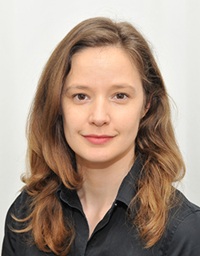Lunch seminar with Helga Molbæk-Steensig
ADJUST - Automatic Decision making and JUSTice: artificial intelligence, court actors and the right to a fair trial
Abstract
Automation is making its way into adjudication worldwide. There are almost 100 bespoke systems in use or under development in Europe alone, conducting tasks from menial transcriptions to complex and discretionary matters such as suggesting relevant precedent or estimating the risk of recidivism.
Much existing research investigates the dilemma between the promise of AI enhancement of efficiency and coherence of adjudication, and concerns about bias, transparency, and the potential erosion of judicial discretion. There remains, however, a gap in the literature detailing how the specific training and design of each system as well as the role of court actors beyond judges, like clerks and registrars, who interact directly with the systems, influence this dilemma. This project aims to fill this gap by investigating to what extent technical details matter when court actors do or do not trust and implement ADM. Methodologically it does so by 1) mapping existing ADM applied in courts worldwide, focusing on algorithmic design, and 2) conducting an in-depth comparative study focused on relationships between judges and non-judge staff in three legal systems: the European Court of Human Rights, Danish and Italian courts. These case-studies are selected for their heterogeneity in legal systems and adjudicative procedure, use of precedent, and division of labour between court staff.
Speaker bio
 Dr. Helga Molbæk-Steensig is a Marie Skłodowska-Curie Fellow at the University of Copenhagen with the ADJUST project which investigates the use of AI in national and international courts and how it affects common notions of justice between judges and other court staff. She is also a postdoctoral fellow at the European University Institute with the ELOQUENCE project where she is focused on the more technical side of the question of how to include fundamental rights directly into the development of Generative AI. Before diving into AI, her research mainly focused on the European Court of Human Rights and the use of empirical research methodologies in law. Her work has appeared in the European Journal of International Law, the European Health Law Journal, the Leiden Journal of International Law, the European Journal of Legal Studies, as well as several OUP and CUP volumes.
Dr. Helga Molbæk-Steensig is a Marie Skłodowska-Curie Fellow at the University of Copenhagen with the ADJUST project which investigates the use of AI in national and international courts and how it affects common notions of justice between judges and other court staff. She is also a postdoctoral fellow at the European University Institute with the ELOQUENCE project where she is focused on the more technical side of the question of how to include fundamental rights directly into the development of Generative AI. Before diving into AI, her research mainly focused on the European Court of Human Rights and the use of empirical research methodologies in law. Her work has appeared in the European Journal of International Law, the European Health Law Journal, the Leiden Journal of International Law, the European Journal of Legal Studies, as well as several OUP and CUP volumes.
Meeting ID: 674 0444 2529
Passcode: 701579
